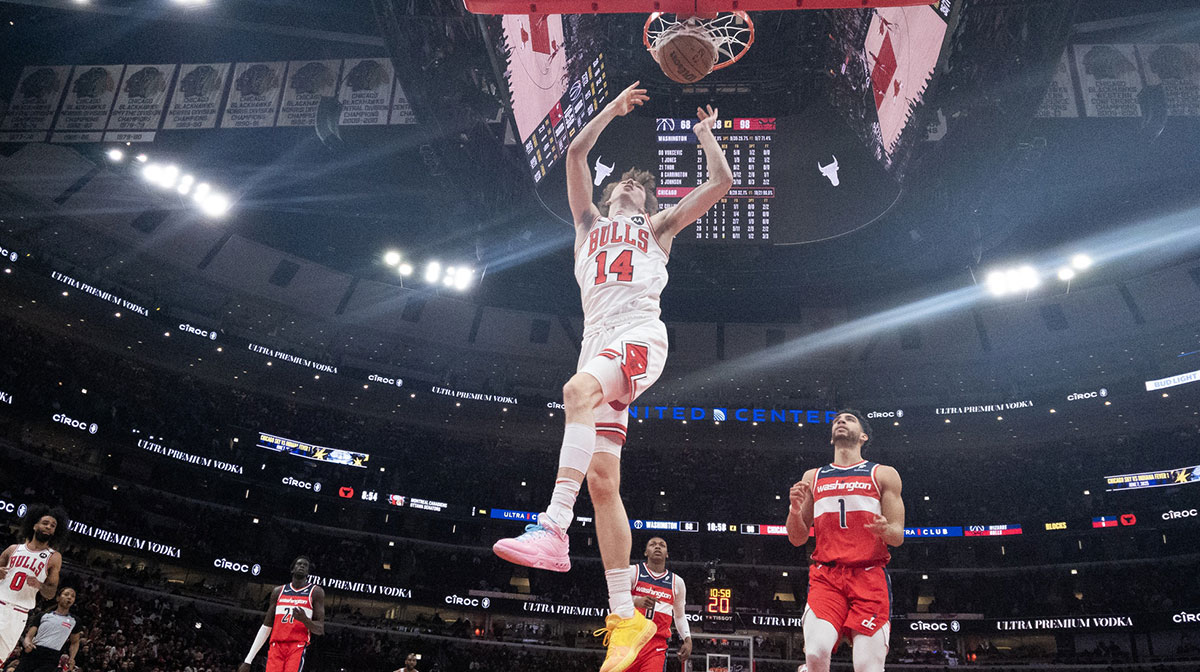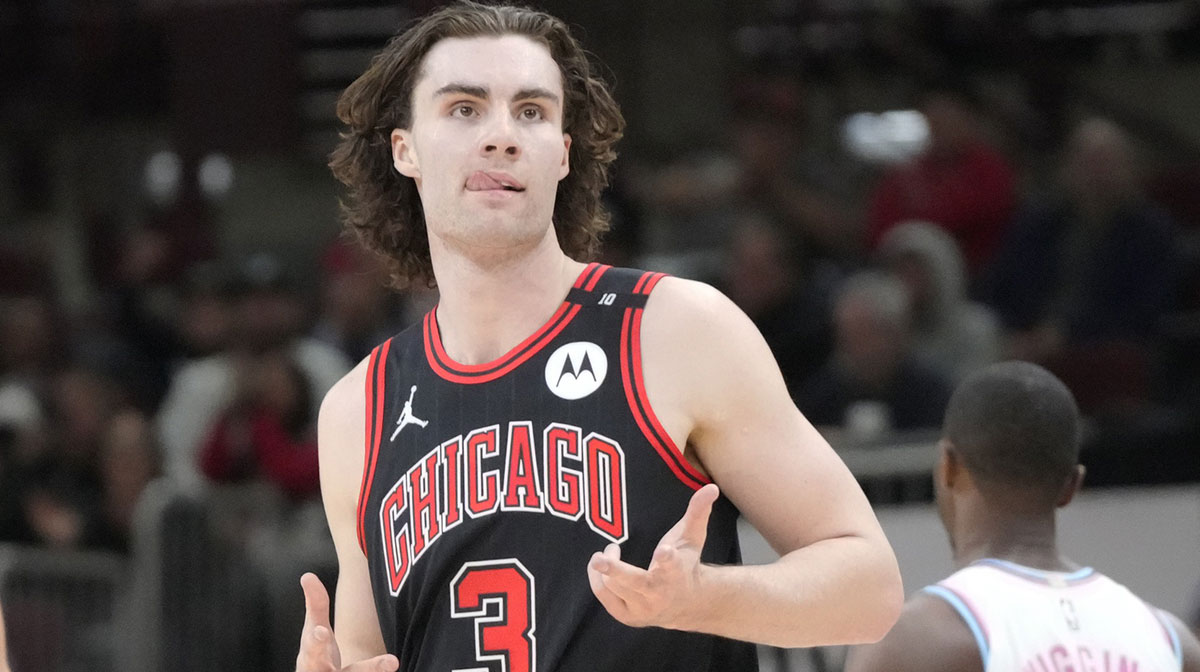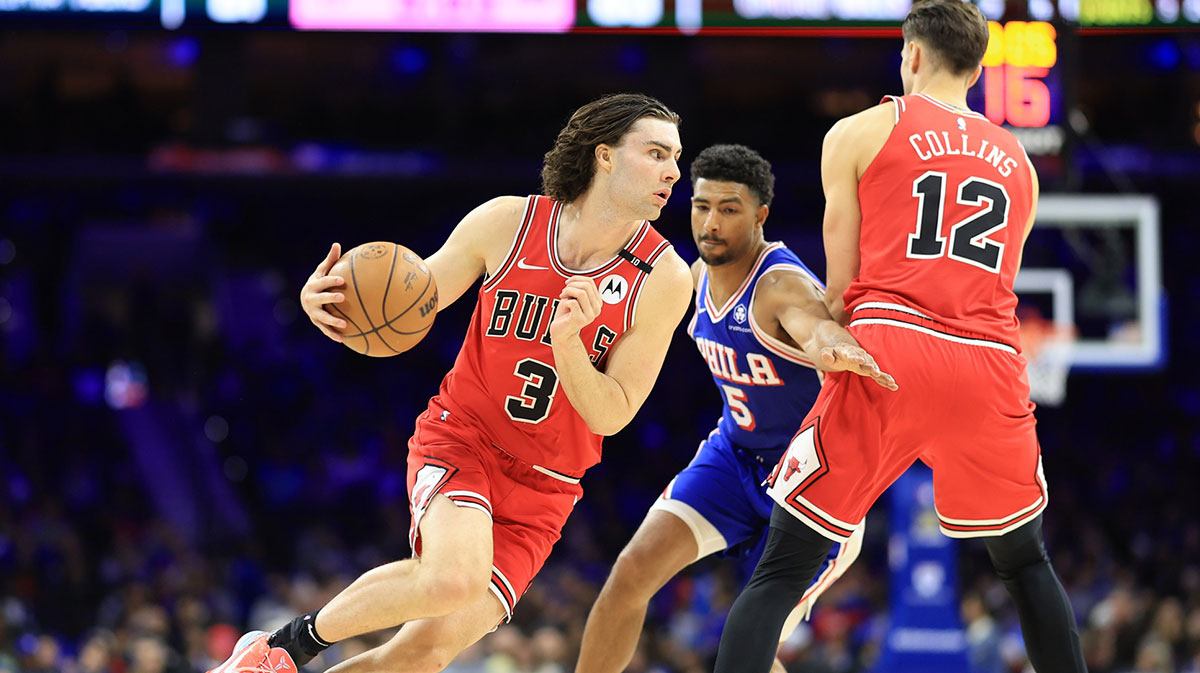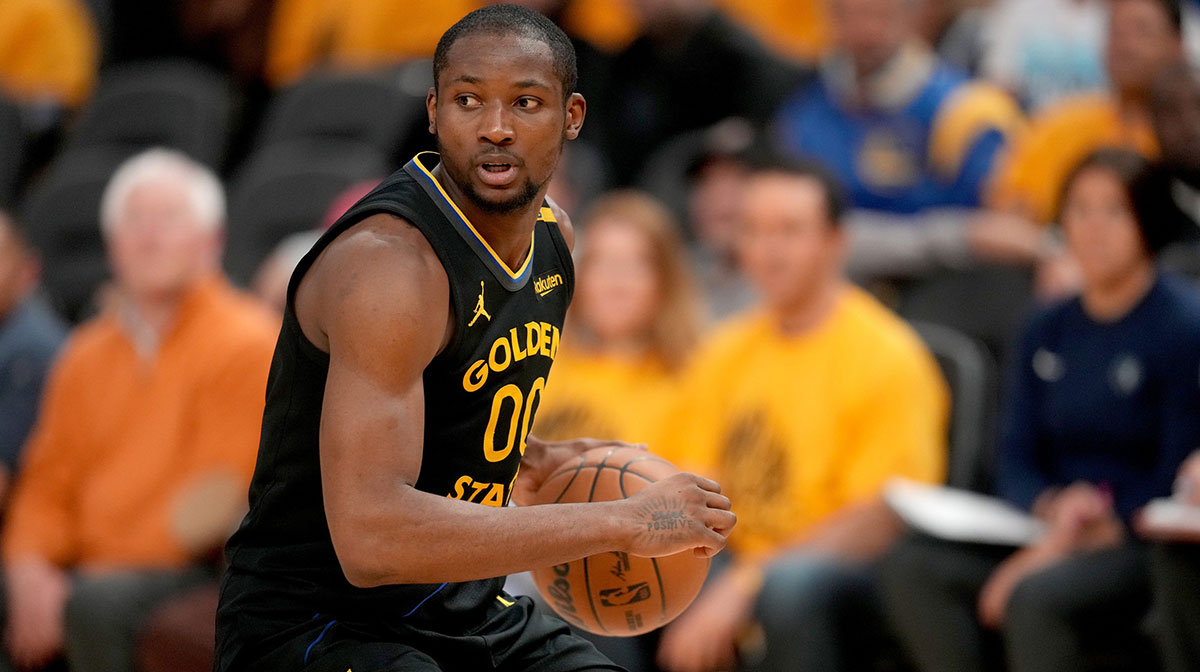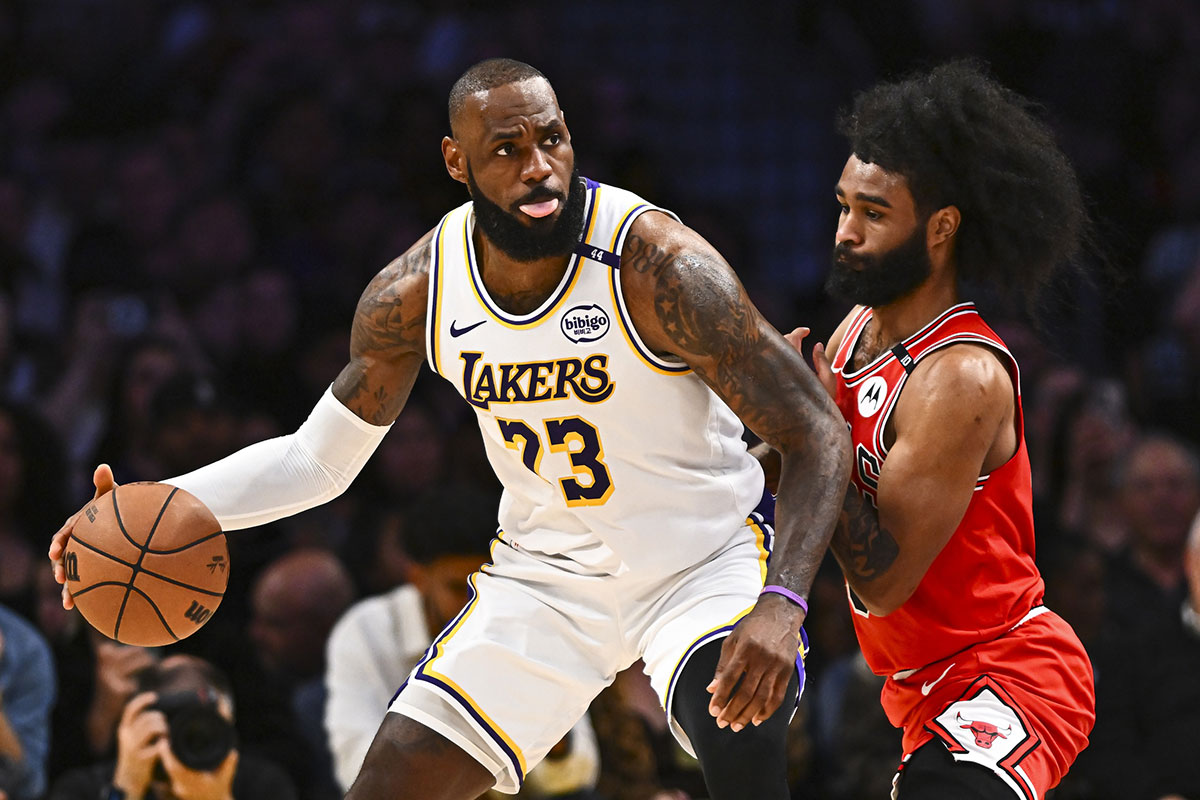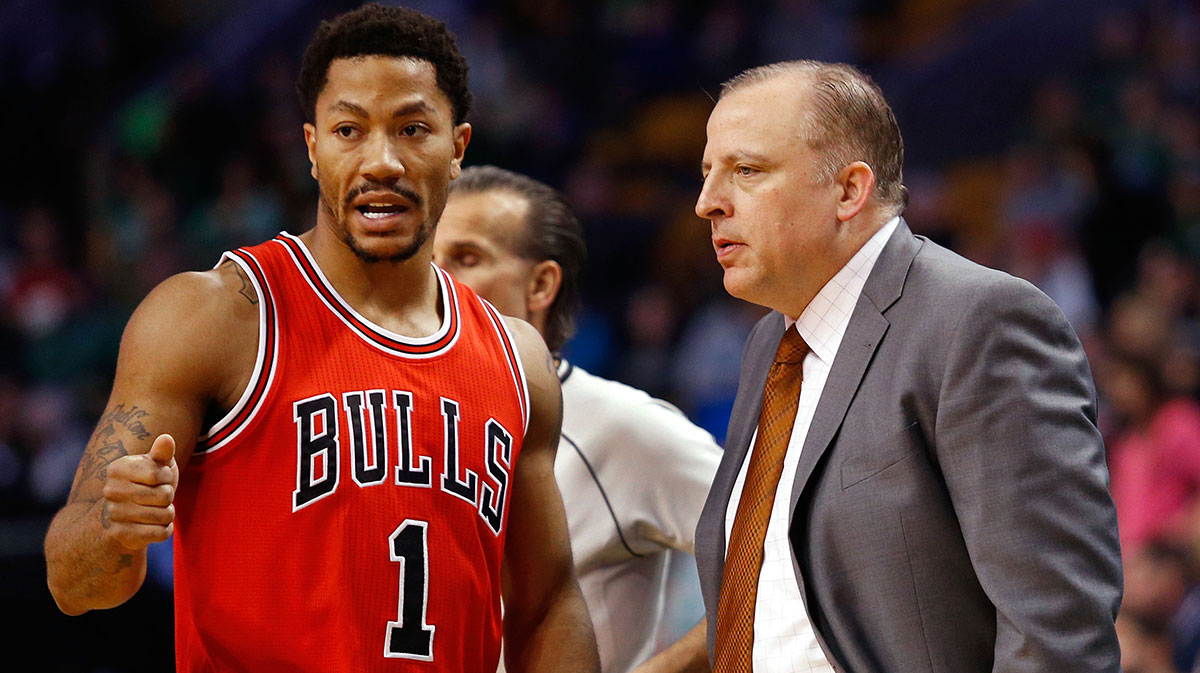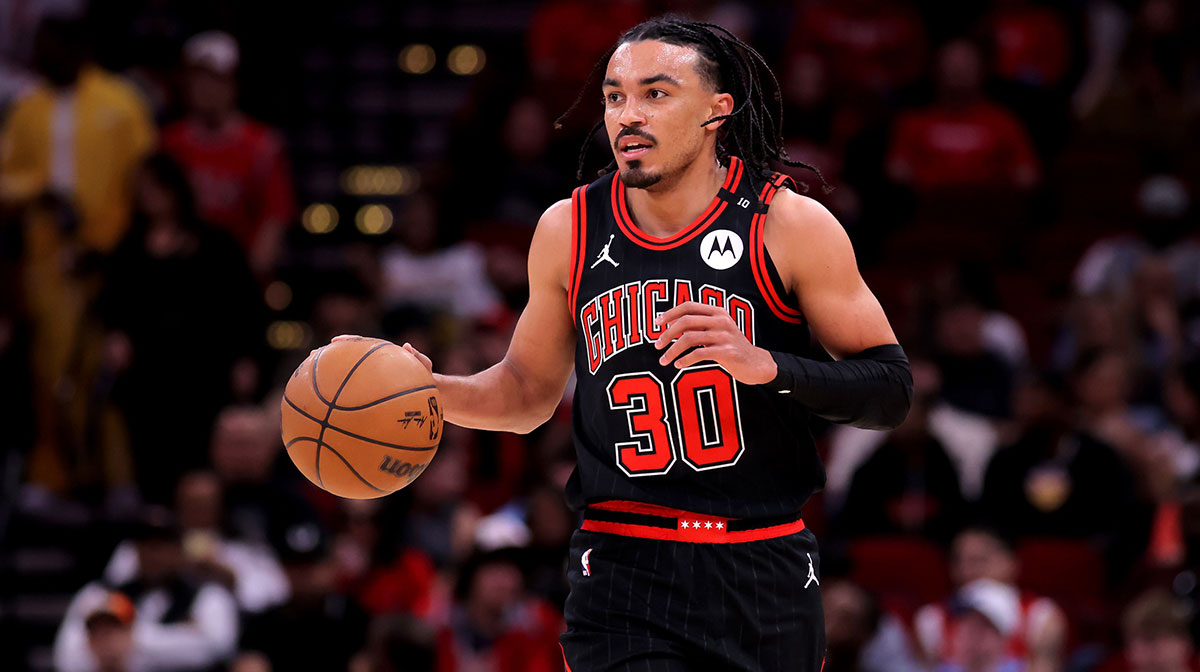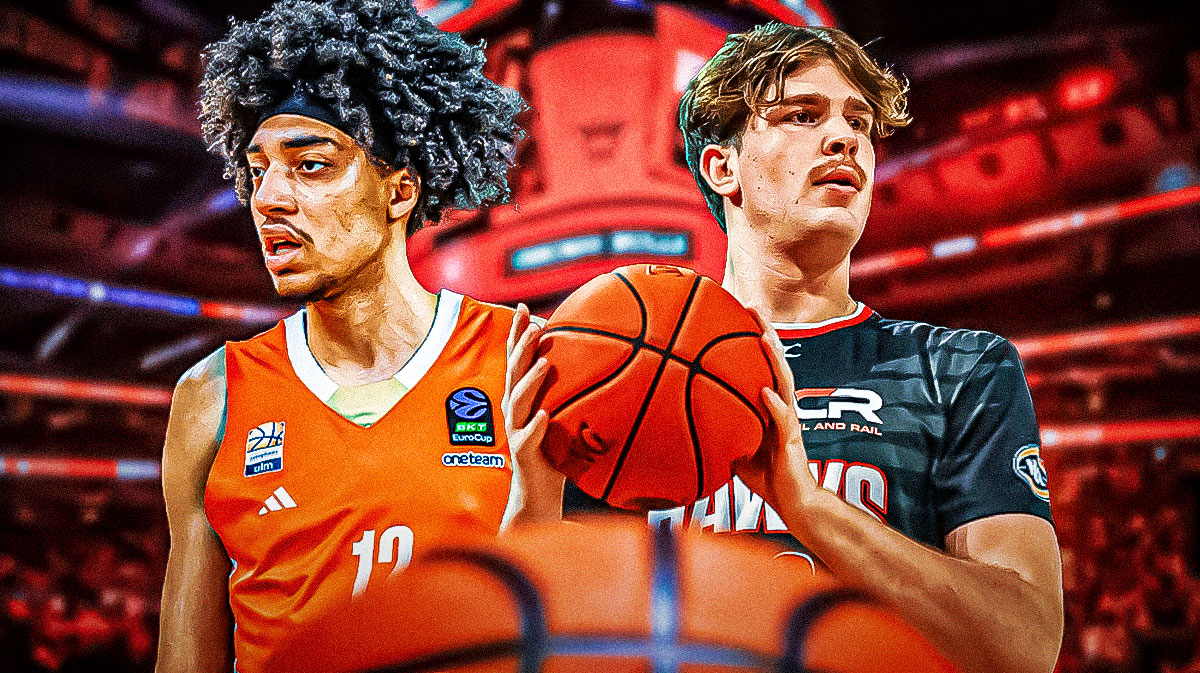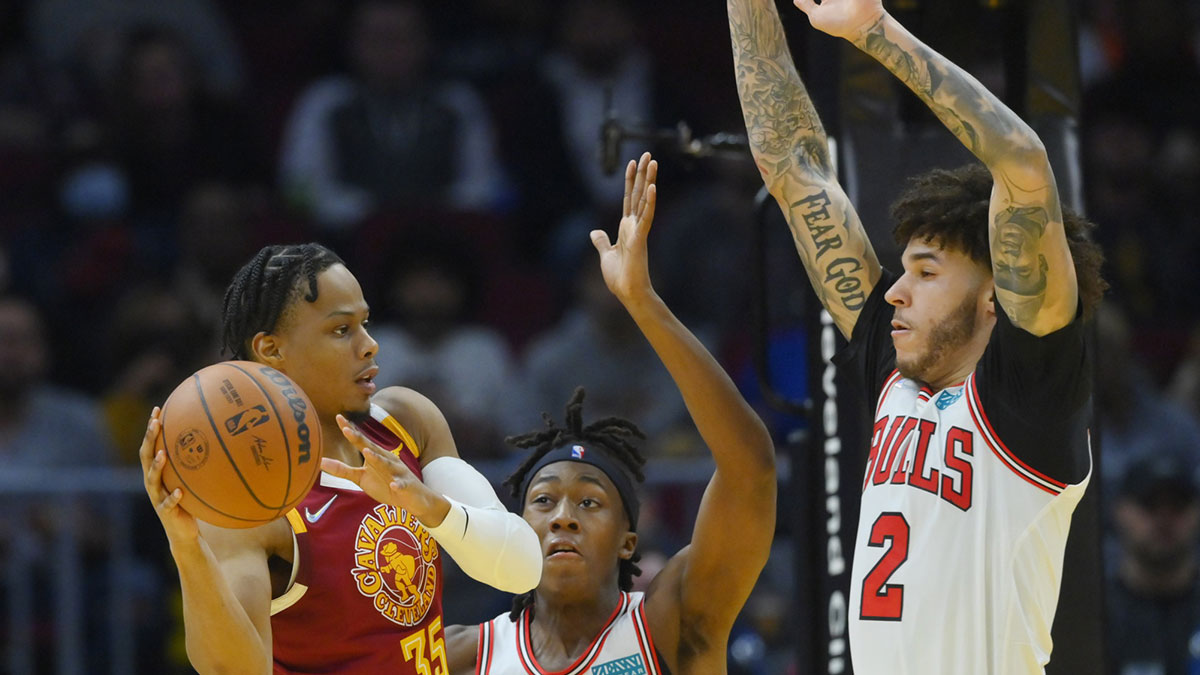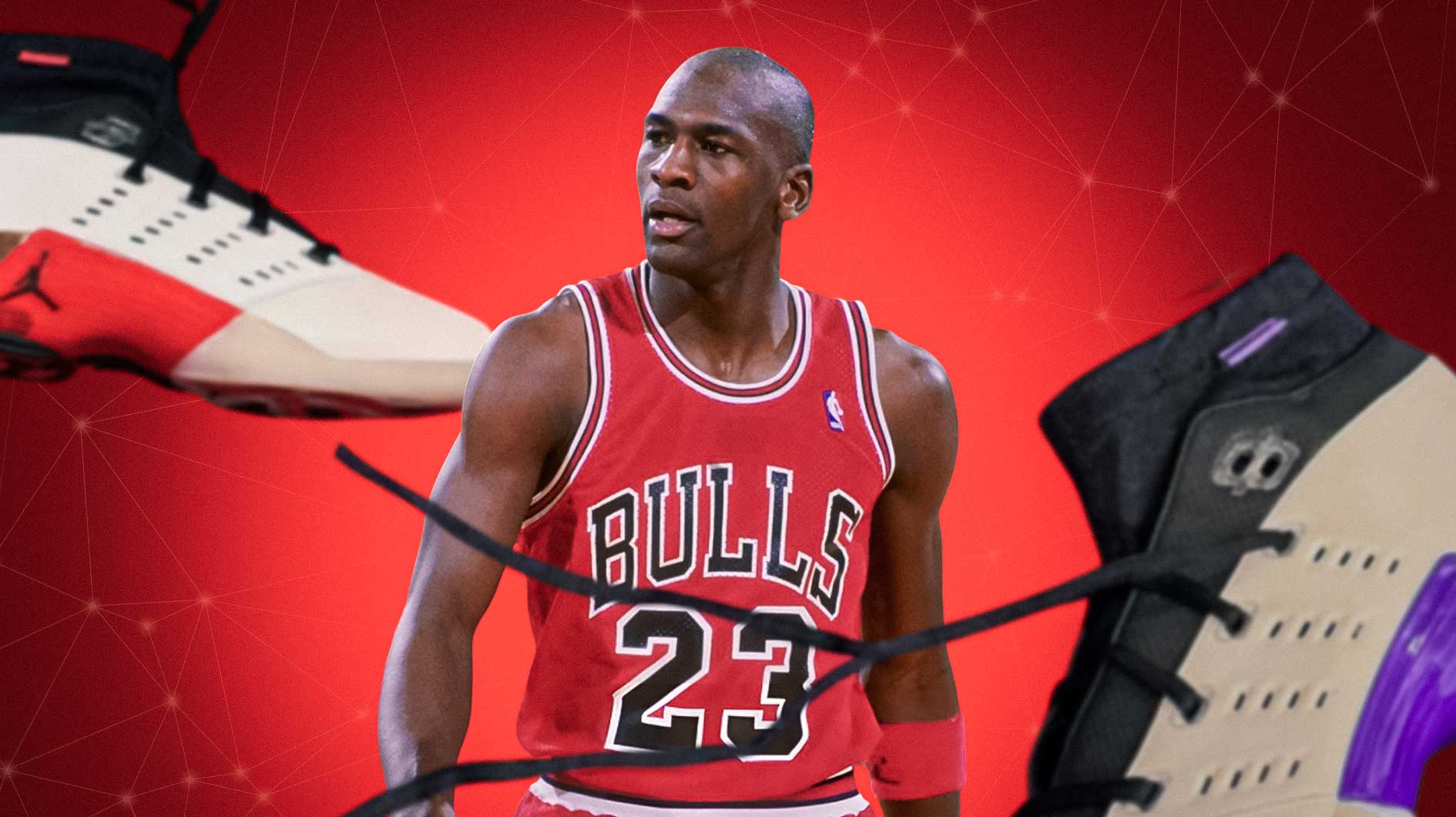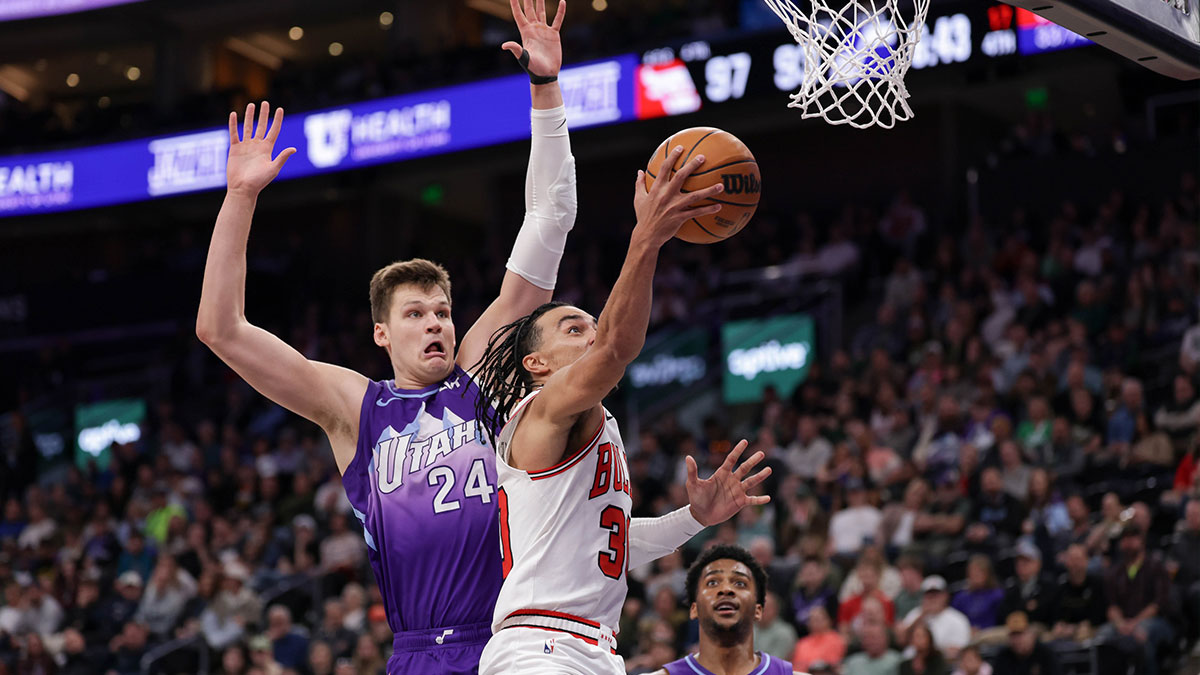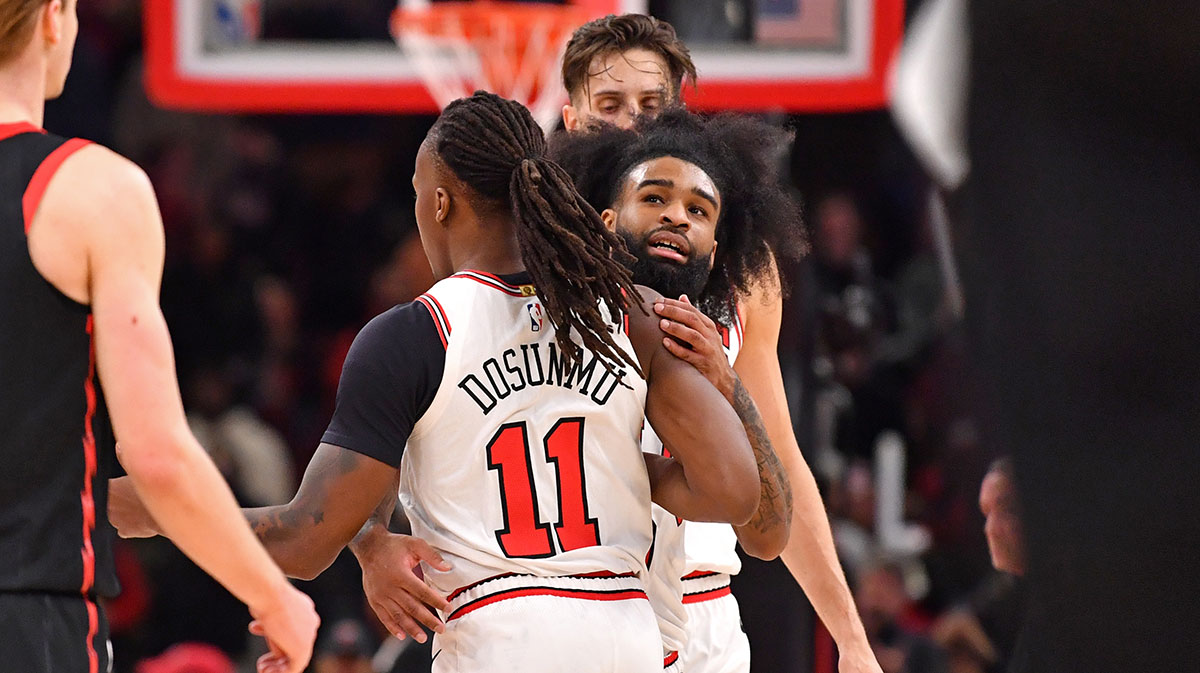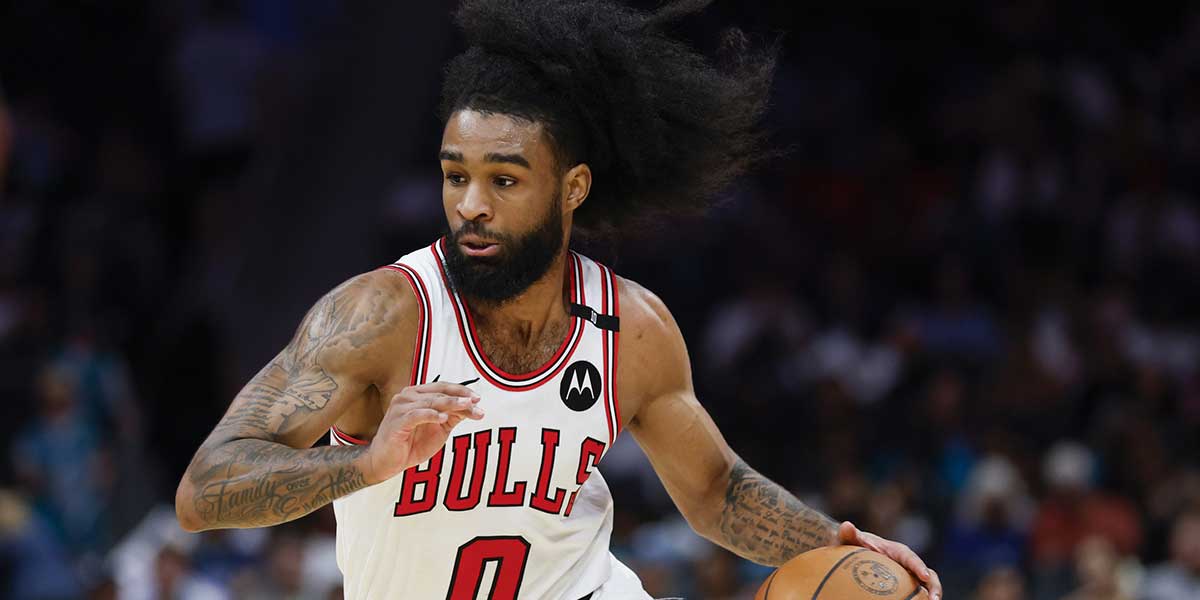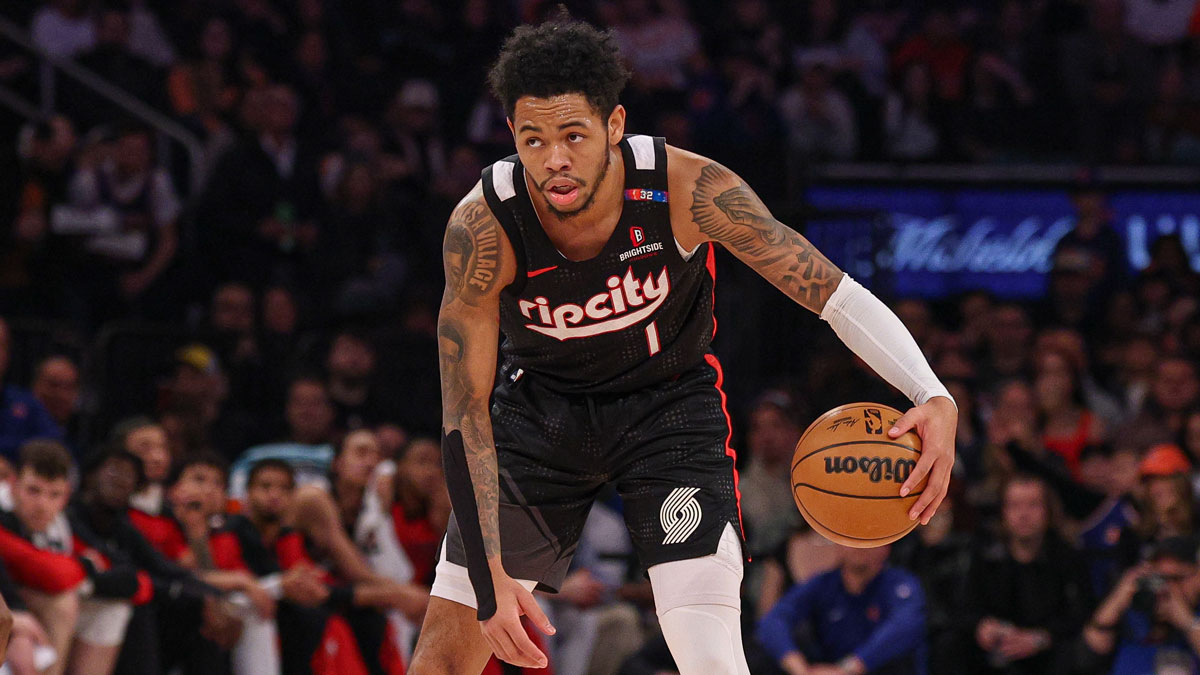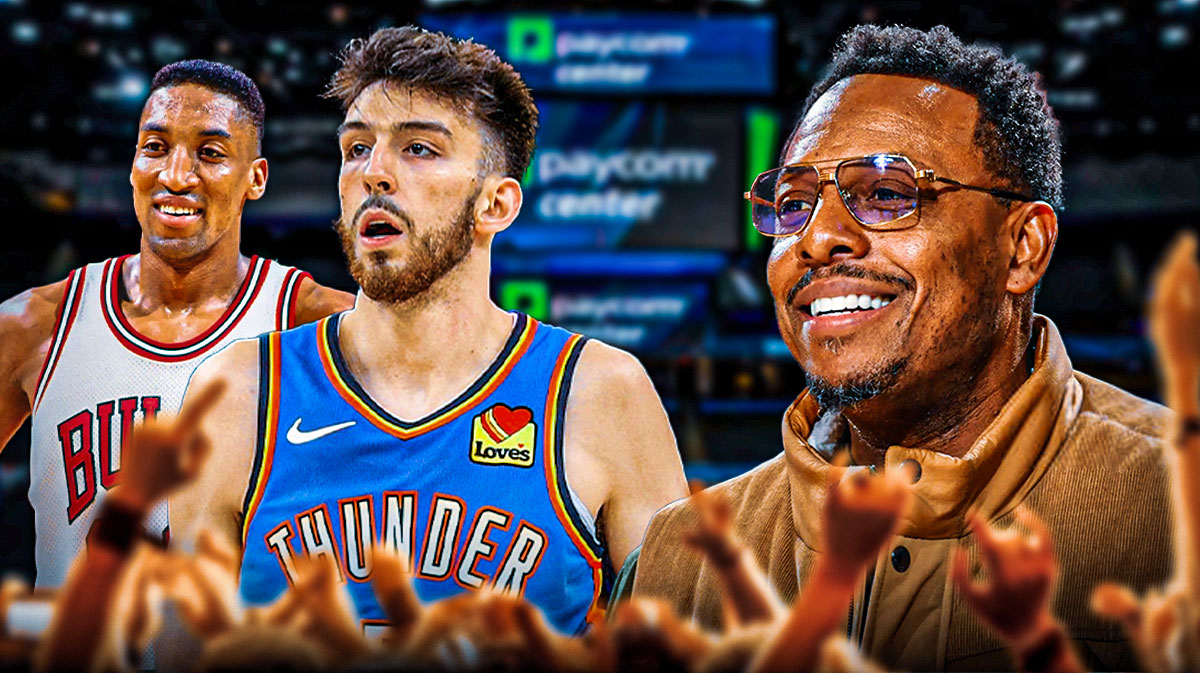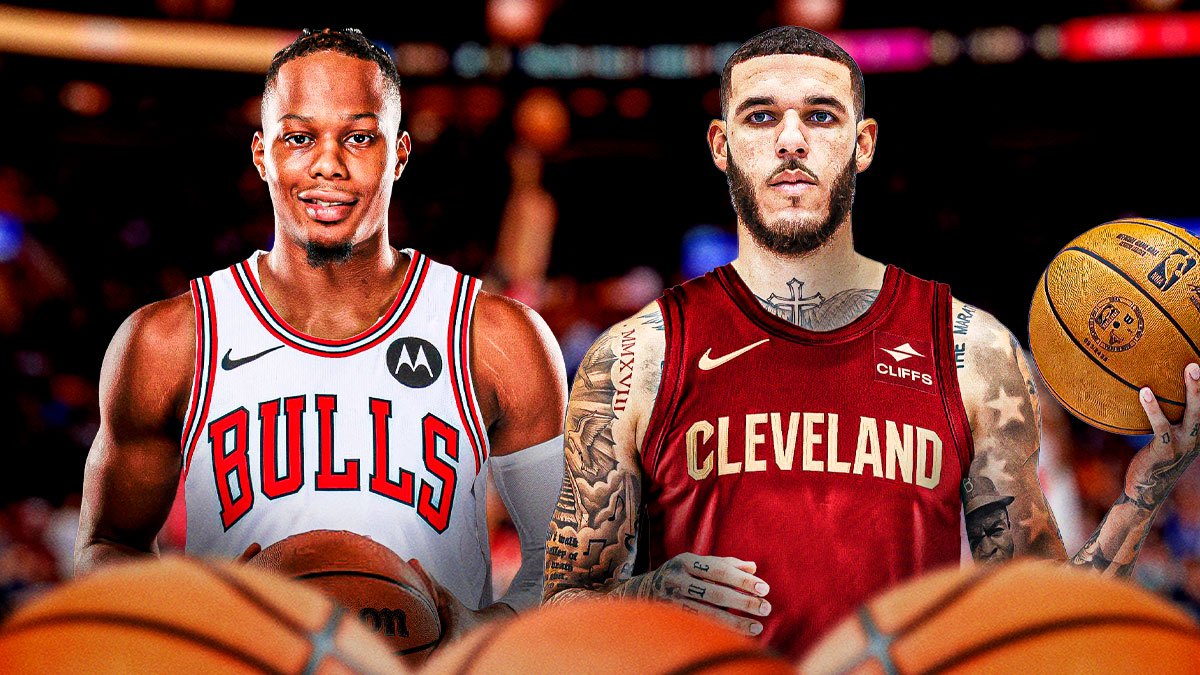Michael Jordan was the most ruthless competitor in NBA history.
Jordan's “win at all costs” mentality helped propel the Chicago Bulls to six championships in the 1990s, and His Airness established himself as arguably the greatest player of all time.
Of course, Jordan himself would be the first to acknowledge he occasionally paid the highest price for winning. This component of his career figures to get more coverage during ESPN's 10-part “The Last Dance” documentary, which premieres on Sunday evening.
Chicago had an established chemistry during each of its three-peats, though that is not to say Jordan never had conflicts with his teammates. He even punched former teammate and current Golden State Warriors head coach Steve Kerr during a practice. Such was the nature of teaming with an obsessive practice player and competitor.
However, Jordan had plenty of respect for the likes of Kerr and other Bulls teammates. He even spoke fairly glowingly about less-heralded players like Jason Caffey and Luc Longley and what they brought to the team.
That said, there were some teammates Jordan had a tough time dealing with throughout his career. Prior to the premiere of “The Last Dance,” let's take a look at some of Michael Jordan's least favorite teammates in his career.
Bill Cartwright
Cartwright made the All-Star team in his rookie year with the New York Knicks, but he was an oft-injured, veteran center when he arrived in Chicago prior to the 1988-89 season.
To make matters worse, the Bulls traded Michael Jordan's best friend — Charles Oakley — in order to acquire Cartwright from New York. Jordan and Oakley remain extremely close to this day, and MJ was livid at the time.
Jordan reportedly took to calling Cartwright “Medical Bill” and picked on the aging veteran with bad knees as soon as he came to Chicago. The two also clashed over the direction of the franchise.
Chicago had brought Cartwright in to add some scoring down low and — eventually — help them install the triangle offense. Meanwhile, Jordan was still intent on doing everything on his own.
Jordan averaged 32.5 points, 8.0 rebounds, 8.0 assists and 2.9 steals during that 1988-89 campaign, though the Bulls would be stifled by the Detroit Pistons come playoff time. The next season, Jordan told his teammates not to pass to Cartwright late in games. Meanwhile, Cartwright said MJ was a supreme athlete but “not a basketball player.”
Of course, Phil Jackson and Tex Winter ultimately convinced Jordan to buy into the triangle, and the Bulls would start winning championships as Jordan showed more trust in his teammates and Scottie Pippen developed into a star.
But the sour relationship did not necessarily end there. Jordan decided not to visit the White House after the Bulls won their first title in 1991, which drew the ire of some of his teammates.
In hindsight, Jordan credited Cartwright for his role in the three-peat and noted the trade that brought him to Chicago was a crucial part of establishing a championship pedigree.
Still, there were plenty of tense moments between the two in the early years.
Rodney McCray
One of the strengths of then-Bulls GM Jerry Krause was his ability to surround Michael Jordan and Scottie Pippen with role players. From Bill Cartwright and John Paxson to Craig Hodges and Scott Williams, Krause understood early how to integrate certain players into the system.
But Krause also had an affinity for acquiring past-their-prime vets.
Rodney McCray had been a double-digit scorer in his first eight years in the NBA, but he took a step back as a member of the Dallas Mavericks prior to joining the Bulls for the 1992-93 season.
Well, Jordan helped ensure it was more than just a step back for McCray. He repeatedly challenged McCray in practice, and McCray averaged just 3.5 points in about 16 minutes per game. McCray also made just seven total appearances in the playoffs that year.
But the biggest mark of Jordan's impact on McCray might be the fact he retired the very next year. Jordan would come to respect those who were not afraid to challenge him or go back at him in practice. Such was certainly the case with Cartwright.
However, it seems McCray simply could not take the mental torment Mike applied on a consistent basis.
Scott Burrell
Burrell played just one season (1997-98) with the Bulls, and he and Michael Jordan are actually on good terms at present. But Burrell also had the misfortune of coming to Chicago during probably the most anxious season of all their championships.
The dislike between Jordan, Pippen, Jackson and Krause was at an all-time high, with all three entering that season on expiring contracts.
Jackson consistently felt Krause was angling to hire a new coach, while Jordan said he would only ever play for Phil. To make matters worse, Pippen would be out until January after undergoing surgery on his toe that October.
Naturally, this meant Jordan would have to whip his teammates into shape. But while he knew how to drag most of the crew along, Burrell was the newcomer. Jordan was certainly not shy about calling out Burrell.
Via Neil Best of Newsday:
In the series, which will run for two hours on five consecutive Sunday nights, Jordan is seen riding Burrell hard in practices and giving him grief off the court, too.
The morning after Super Bowl XXXII on Jan. 26, 1998, Jordan and Burrell are on a plane to Vancouver when Jordan launches into a biting monologue about Burrell’s alleged late-night drinking and socializing with women.
Finally, Jordan calls him “Dennis Rodman Jr.” as Burrell begs the cameraman to turn away, lest his parents get a look at the video and cringe.
Burrell was powerless to stop it. “It’s funny, because whatever he says, he’s going to do what he wants to do,” he said. “That’s who he is. There’s nothing you can really say.”
Seems a little hypocritical for Jordan to be criticizing teammates for late-night shenanigans, all things considered.
In any case, Jordan felt a sense of urgency with everything going on from an organizational perspective, and he often took it out on Burrell.
Honorable Mentions
Kwame Brown
Michael Jordan frequently got on Brown's case when he elected to make his second return as a member of the Washington Wizards.
But this relationship comes with a specific caveat: Jordan actually drafted Brown. Thus, he was probably hoping Kwame would rise to the challenge and fulfill his promise as a No. 1 pick. Needless to say, that did not happen.
Will Perdue
Though Cartwright would ultimately gain Jordan's respect, Perdue — one of the reserve centers on those early championship teams — became Jordan's new punching bag at the center position.
In fact, former Bulls forward Horace Grant previously recounted a story where Jordan punched Perdue during practice and criticized him for lacking toughness in games.
Nevertheless, Perdue was a key bench cog during the first Bulls three-peat, and he persisted through the psychological warfare.
Horace Grant
Speaking of Grant, he and Jordan repeatedly had verbal battles over the course of their time together in Chicago.
Grant held out for a stint during his rookie year before Jordan and Oakley made it clear he was in a whole new league. Grant would also become a bit of a distraction prior to the first championship season when he demanded — and ultimately received — a contract extension.
Of course, Grant was arguably the third-best player on those Bulls teams. Like Cartwright, he was not afraid to stand up for himself and challenge Jordan, and there was a sense of mutual respect between the two.

